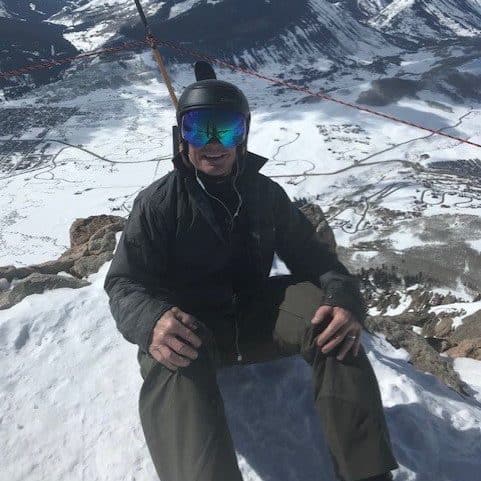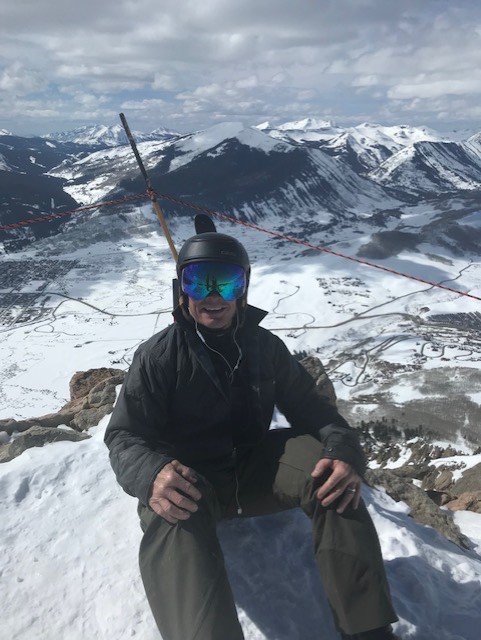By Emily Tanner
In light of the recent student death at Western, many students are grieving and suffering with mental health problems. If you find yourself struggling or in crisis, please know that there are resources available to help you make a real change. For immediate help, call crisis services at 970-252-6220. More resources are listed at the bottom of this article.

Gary Pierson, Dean of Students for Western, has been working with young adults in the valley for more than two decades. Intimately familiar with Western’s rural landscape, he knows that our location presents a unique challenge for access to mental healthcare. Whether this is due to overbooked providers, financial hardships, maintaining staffing, or a number of factors; his message is clear: “It’s not because people don’t care. People do really care about our community.”
The pandemic has left a mental health crisis looming over the heads of psychiatrists, providers, parents, and educators alike; but rural communities have been lacking mental health infrastructure since pre-pandemic times. Now, mental health teams and community members are working to build that framework and bring holistic forms of wellbeing into Gunnison. Dean Pierson is one educator at the forefront of student advocacy.
When asked how he would describe the state of mental healthcare in Gunnison Valley today, Pierson acknowledged the concern that many people in the county share. However, he is particularly encouraged by The Center for Mental Health (CMH) and Gunnison Valley Hospital’s (GVH) outreach and resource allocation. His hope is that Western’s decision to switch providers from CMH to GVH will lend way to more emphasis and access to in-person counseling.
Though the pandemic has normalized teletherapy services, Pierson thinks that personal connection is still vital. “[It’s] the nature of how we are and how we operate as a campus, we really thrive on personal, one-to-one connections. With that being said, I think it just makes sense that we should also continue to emphasize in-person counseling.”
Accessibility has become a longstanding issue in the world of rural mental health. According to Academic Psychiatry, “More than 60% of all U.S. counties and 80% of all rural U.S. counties do not have a single psychiatrist… While almost 8.7% of the U.S. population lives in rural counties, just 1.6% of U.S. psychiatrists practice in those same areas.”
In Gunnison, the cost of living met with a lack of staffing only amplifies the issue. Pierson explains that, “The Center for Mental Health and GVH are going to have challenges…[especially with] finding candidates and being able to hire them and keep them here.”
Pierson added that GVH’s ability to retain employees and the organization’s approach to providing better options to Gunnison leads him to believe that Western is headed in the right direction on matters of mental health.
The CDC reports that Colorado experiences a suicide rate of 21.5 out of 100,000 people. The national average sits at 14 out of every 100,000. Gunnison County’s own Crested Butte State of Mind estimates that the area experiences nearly twice the suicide rate as the rest of Colorado, citing 39.5 suicides out of 100,000 people. However, progress in self-advocacy and normalizing conversations surrounding mental health has created new opportunities for outreach.
“In Gunnison County in particular, we do a good job with outreach and messaging because we’re aware of it and trying to help make a difference for our community,” adds Pierson. Pierson, along with other Western professors have been known to give out personal contact information in the event that a student needs immediate help.
Western has backed several campaigns promoting the wellbeing of students in recent times. The Center for Mental Health operates a free in-person counseling center on campus, TimelyCare has been introduced as a remote therapy option, and the Peer Health Educator team connects students with health resources.
Despite the setbacks and obstacles that pose threats to the mental state of Gunnisonians, Pierson is confident that Western and the greater community is working towards a better future. Though Gunnison is not immune to the challenges of resource accessibility, these shortfalls are certainly not for a lack of care and effort.
Pierson says that the dedicated teams and staff that lend their talents in advocacy, outreach, funding, and organization are all doing their part to convert concern into action.
Major changes in Gunnison’s mental healthcare are already taking effect, but Pierson’s primary hope is that the work of dedicated individuals valley-wide will continue to pay off in the coming years.
Reporter’s note: Special thanks to Dean Gary Pierson for taking the time to meet with me and for all of his work in advocacy.
Mental Health Resources in Gunnison:
Western Peer Health Educators (located in UC 103)
TimelyCare (Free for Western Students)
Western Counseling Center (Free for Western Students, Crystal 104)
On-Campus/Western Colorado University Resources:
- 24/7 Crisis Line: 970-252-6220
- The Center For Mental Health: 970-648-7128
- Gunnison Valley Behavioral Health: 970-648-7128
- Project Hope: 970-641-2712
- Crested Butte State of Mind

